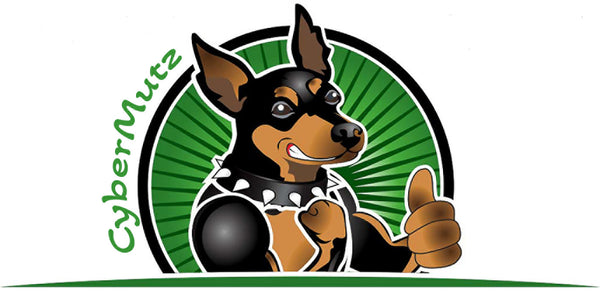
🐶 The Benefits of Socialization for Puppies: Raising a Confident, Happy Dog
Share
🐶 The Benefits of Socialization for Puppies: Raising a Confident, Happy Dog
Bringing home a new puppy is pure joy—but your job as a pet parent is just getting started. One of the most important steps in raising a well-adjusted adult dog is early socialization. Done right, it lays the foundation for a confident, calm, and balanced companion.
But what exactly does “socialization” mean, and why is it such a big deal?
Let’s break it down—why early socialization matters, how to do it safely, and what long-term benefits it brings to your pup’s behavior and well-being.
🧠 What Is Puppy Socialization?
Puppy socialization is the process of gently and positively exposing your puppy to a wide variety of people, animals, sights, sounds, and experiences between the ages of 3 to 14 weeks. This critical window is when puppies are most open to learning and least fearful of new things.
Miss this window, and your pup could grow into an anxious or reactive adult. But handle it well, and you’ll raise a pup who’s confident, calm, and ready for the world.
🌎 Why Is Socialization So Important?
Socialization isn’t just about playdates. It teaches puppies how to interpret and respond to new stimuli. The more experiences they have early on—in a safe and positive way—the more adaptable they’ll be as adults.
✅ Long-Term Benefits of Puppy Socialization:
-
Reduces fear and anxiety in unfamiliar situations
-
Prevents aggressive behavior toward other dogs or people
-
Boosts confidence and improves overall behavior
-
Helps with vet visits, grooming, travel, and other life situations
-
Improves adaptability to changes in environment or routine
-
Strengthens the bond between you and your pup through trust and positive reinforcement
👶 Socialization vs. Overwhelm: Find the Balance
It’s not about throwing your pup into every situation at once—it’s about gradual exposure with a positive spin.
Start with:
-
Calm adults and children of all ages
-
Other friendly, vaccinated dogs
-
Household sounds (vacuum, dishwasher, doorbell)
-
Different surfaces (carpet, grass, tile, gravel)
-
Car rides, crates, and walking on a leash
-
People wearing hats, sunglasses, uniforms, etc.
Each time, offer praise, treats, and patience. Watch for signs of fear and don’t force interactions—you’re building confidence, not triggering stress.
🐕🦺 Tips to Safely Socialize Your Puppy
-
Start early (ideally between 8–14 weeks old)
-
Use positive reinforcement (treats, toys, praise)
-
Keep new experiences short and sweet
-
Expose to different environments gradually
-
Attend puppy socialization classes (with your vet’s approval)
-
Don’t overwhelm – one new experience at a time
-
Prioritize safety and vaccination when introducing new dogs or places
🐾 Pro Tip: Carry your pup into high-traffic areas if they aren’t fully vaccinated. They can still soak up the sights and sounds safely!
🛠️ Common Mistakes to Avoid
-
Skipping socialization altogether (especially due to fear of illness)
-
Overwhelming your pup with too much stimulation
-
Punishing fearful behavior instead of building trust
-
Missing the socialization window and trying to catch up later
💬 Final Thoughts
Proper puppy socialization isn’t optional—it’s essential. By gently introducing your pup to the world, you’re setting them up for a lifetime of good behavior, emotional stability, and joyful companionship.
Whether it’s your first puppy or your fifth, remember: a confident dog doesn’t happen by accident. It’s built through purposeful, positive experiences early on.
🛒 Gear Up for Socialization Success at CyberMutz
From travel-friendly accessories to enrichment toys that boost confidence, we’ve got everything you need to make socialization a breeze.
👉 Brows Essentials e Socialization
